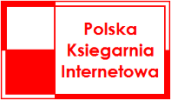Kategorien
- Spielzeuge
- Puzzle
- Brettspiele
-
 Szybka wysyłka
Szybka wysyłka
- Promocje!
- Albumy
- Artykuly papiernicze
- Audiobooki
- Bajka i baśń
- Biografie
- Dla dzieci i młodzieży
- Encyklopedie i leksykony
- Ezoteryka
- Fantastyka
- Filmy
- Historyczne
- Horror, literatura grozy
- Jan Paweł II
- Kalendarze
- Komiksy
- Kryminały
- Bucher auf Deutch
- Książki kucharskie i diety
- Legendy, podania, mity
- Literatura erotyczna
- Literatura faktu
- Muzyka
- Nauka i Naukowcy
- Nauki Przyrodnicze
- Naukowe i popularno-naukowe
- Podręczniki szkolne
- Poradniki
- Religia i wiara
- Romanse
- Science-fiction
- Sensacyjne i thrillery
- Słowniki
- Sport
- Sztuka i fotografia
- Technika
- Wojskowość i wojny
- Zdrowie i uroda
Newsletter
Für unseren Newsletter registrieren
Dieses Feld wird benötigt
Dieses Feld wird benötigt
Bitte warten...
- Home /
- Controlled Foreign Companies (CFC) and Tax Avoidance: International and Comparative Perspectives
Zapraszamy do zakupu tego produktu!









